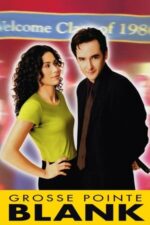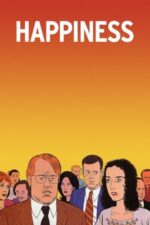Beyond the Couch: Exploring Cinema’s Complex Portrayal of Therapists
We all, at some point, consider talking to someone – whether it’s about navigating a tricky relationship, processing grief, or just feeling…stuck. And for decades, cinema has been fascinated by that space between patient and therapist, often twisting the familiar tropes into something far more compelling than a simple “talking cure.” It's not always about fluffy self-help; these films dig deep, exploring power dynamics, ethical boundaries, and the surprisingly messy reality of human connection.
Think about it: traditionally, the therapist is presented as this calm, objective figure – a reassuring presence guiding us through our emotional turmoil. But what happens when that objectivity cracks? Not Without My Shrink throws that notion completely out the window. The film’s premise—a psychoanalyst whose life unravels thanks to a manipulative patient and an inappropriate relationship with his daughter—is deliciously unsettling. It's a fascinating exploration of transference, boundaries, and how easily even the most seemingly stable individuals can be destabilized. It reminds me a bit of those moments in Succession where you realize someone’s carefully constructed facade is about to crumble – only here, it’s happening within the supposedly safe confines of therapy.
But therapists aren't always the ones being examined. Laura Hasn’t Slept offers a more nuanced perspective, showing how the therapeutic relationship can be mutually transformative. The therapist isn’t just helping Laura unpack her nightmares; she’s also confronting her own vulnerabilities in the process. It highlights that healing isn’t a one-way street – it's an exchange of empathy and understanding.
What I find particularly interesting is how these films often use the therapeutic setting to explore broader societal anxieties. Schizoid, for example, takes the familiar therapist archetype and plunges it into a thriller, questioning trust and exposing the fragility of community when fear takes hold. It’s a far cry from the comforting image we often have, but it's undeniably gripping.
Even films that don’t explicitly feature therapy sessions can touch on similar themes. All the Wilderness, with its focus on grief and finding connection after loss, subtly echoes the therapeutic process – the protagonist seeking guidance and support to navigate a difficult emotional landscape. And in Daddy and Them, while not a formal therapy setting, the family dynamics and attempts at communication feel like a desperate form of self-help, highlighting how we all try to heal each other, even when we don't know how.
Ultimately, these films remind us that the human psyche is complex, messy, and often unpredictable – both for those seeking help and those providing it. They challenge our assumptions about healing and offer a glimpse into the intricate dance of vulnerability and connection that defines so much of the human experience.
What are your thoughts? Have you seen any other films that explore this fascinating dynamic in interesting ways?







































